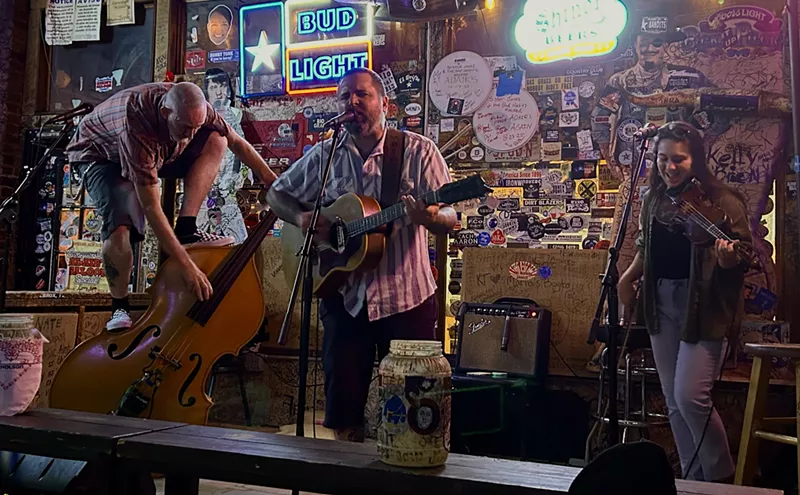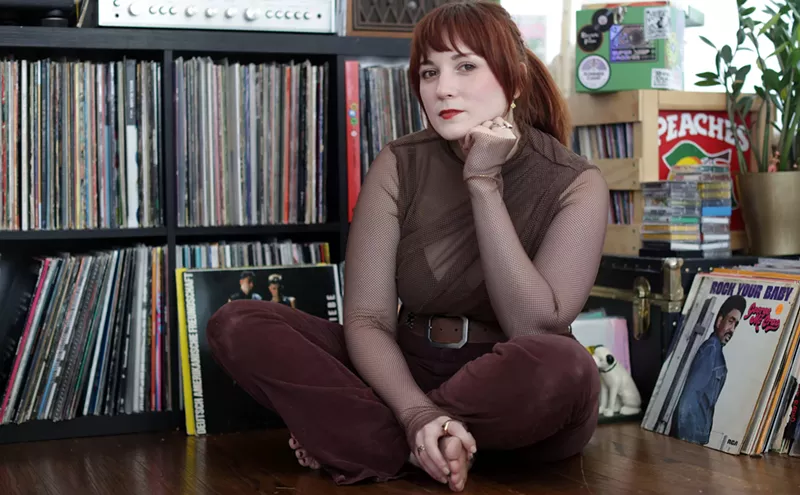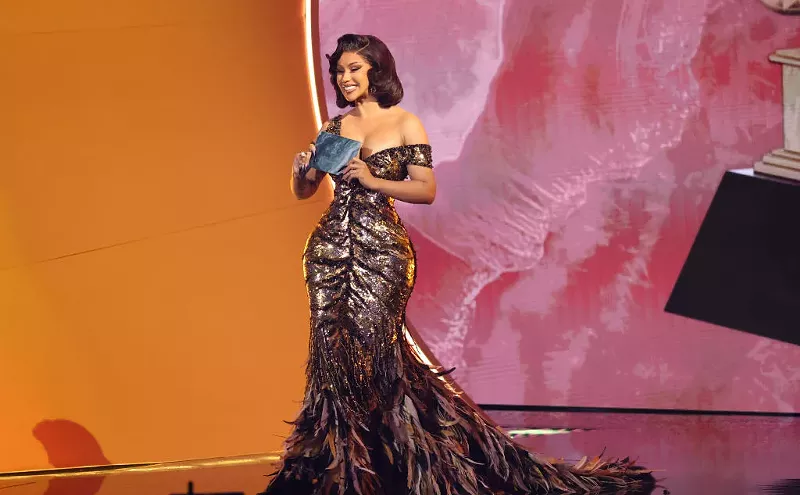Influence is a funny thing.
Unlike inspiration, which can strike at any time, influence seems to follow the trends of what's hot in music. It's rare for an act to dip into the music history archives and pull out an interesting, ear-catching influence without others quickly following suit. This happens all the freakin' time in the world of independent alternative rock. And it's annoying as all hell.
No, we get it: You all like Ian Curtis. And thus you all just happened to pick 2005 as the perfect time to announce your Joy Division obsession to the world. All of you.
Don't get me wrong; it's not always this specific. There are always the more generic staples, the influences that never fade: If a band is blues-rock heavy, they must be into Zeppelin; if a band is more jangly, much of the credit must certainly go the Stones' way; if a band brings metal riffs into play, surely they're stealing from Sabbath, because Sabbath, let's face it, used up all the good riffs; and for everyone else, there's of course the Beatles' anthology—which can apply to anything that eats, sleeps or breath pop. Or experimentation. Or psychedelia. Or, well, anything, really.
Hey, I get it. As critics, we sometimes take the easy way out, and too often these days, much like with today's music, music criticism seems derivative—only instead of our influences (there ain't a Lester Bangs in the bunch of us, sorry), we're derivative of other writers' observations. We hear that someone else heard a little Tears for Fears in that synth riff? Suddenly we, too, hear it. It's kind of tough not to do so, unless you can cut yourself off from the rest of the critical world. It's like staring at a magic-eye painting that everyone says is hiding a boat: Godammit, you're gonna stare at that sucker until you see a boat.
It's not always the critics' fault. In recent years, there's been a spate of more timely, less archetypal, but nonetheless blatantly obvious influences bubbling up and appearing among taste-making bands. And although these resurgent influences seem to come at random intervals, they always come with strength in numbers.
The most glaring example of this, of course, was the Joy Division craze of a few years back, which saw the rise of The Killers, Interpol, Editors and, yes, even local favorites Black Tie Dynasty. But there have been many others. After the rise of Fallout Boy and its Fueled by Ramen label stable of minions, Hall & Oates, of all acts, was cast as that emo pop-punk movement's savior (most prominently by FoB acolyte Gym Class Heroes, who deemed their 2007 summer tour the "Darryl Hall for President Tour" and went on to collaborate with their idol). Which is off-putting. And unfortunate for Hall & Oates fans. In hip-hop, influence is a much timelier affair. After Kanye West's meteoric rise in the early '00s, thousands of producers followed West's soul-sample-heavy lead. And where The Neptunes inspired a slew of tinny beatmaking wannabes, Timbaland's synth-heavy sound gave way to a bevvy of Scott Storches.
Last year—finally—the mainstream music media seemed to pick up on the sheer transparency of such trends. When it became clear that indie stalwarts Arcade Fire, The National and The Hold Steady—which stood together at the top of last year's critically acclaimed independent music heap—all owed much of their sound (if, albeit, different elements) to the path laid out by Bruce Springsteen and The E Street band, Spin magazine put the Boss on its cover—an interesting move if only because Spin likes to represent itself as the anti-Rolling Stone, and, as far as Rolling Stone is concerned, Springsteen may as well be God (or, at the very least, just slightly better than RS fave John Mayer).
So it seems a little odd, then, that the Beach Boys haven't yet received similar pop in '08. Why wait another three months, for those fancy year-end lists and all, to confirm what's already been determined as a trend, if unwittingly?
A simple Google News search reveals it all—search "Beach Boys harmonies" and you'll see it applied to "hip, new" bands across a wide spectrum: Fleet Foxes, The Explorer's Club, New Pornographers, The Little Ones, French Kicks, Midnight Juggernauts, even What Laura Says Thinks and Feels (see page 56, although we're hardly the first to designate them as a Beach Boys-influenced act) are just a few of the names that will pop up. (And whenever the Brooklyn experimental act Grizzly Bear gets around to releasing a new album, this trend will continue, as much of the praise for the act's leaked "Two Songs" track seems to focus on the same Beach Boys harmony jive.)
The question, then, is whether or not the Beach Boys' influence is one projected onto the music by critics or one that's truly being put forth by the artists. In this case, it just may be more the former. This year has already seen the publishing of three Beach Boys-related releases: the 16-disc boxed set re-release of the Boys' U.S. Singles Collection: The Capitol Years, the reissue of Dennis Wilson's Pacific Ocean Blue and the fifth solo studio release of Brian Wilson's career, That Lucky Old Sun. So, yes, the Beach Boys are no doubt prevalent in the public consciousness this year.
I'd argue that this constant Beach Boys influence-spotting trend isn't a simple case of projection, though. One listen to Fleet Foxes' "White Winter Hymnal"—certainly the breakout single on an otherwise stellar disc—and it becomes clear where the Foxes became inspired with the harmonic round used in that song's introduction. Or—seriously—listen to any single second from The Explorer Club's release Freedom Wind, and even the least well-versed listener will tell you where those falsetto sand-and-surf ditties came from. That doesn't make the album less enjoyable—although it certainly makes it less groundbreaking.
Is this surprising? Not in the slightest. The biggest knock on today's music is that it's all derivative. Audiences seem to be yearning for a new sound, for something—anything—that sounds a little different from what's being promoted on the radio and in the magazines.
Me? I listen to a lot of new music, and I haven't heard anything particularly new-sounding yet this year. The most refreshing new music discoveries I've made lately aren't the ones that create new sounds—maybe because there aren't any—but rather the ones that seem to do interesting, new things to those old sounds, like, say, Vampire Weekend or MGMT, who offer welcome updates on Paul Simon and David Bowie, respectively, and who, yes, I'm still raving about half a year after their initial releases.
Maybe this is just what music has come to. Maybe music these days isn't about finding that new sound, but rather about finding that new band that reminds us of an old sound that we've somehow come to forget—and didn't even realize that we missed.
Surely, the hipster set wouldn't have gone as bonkers earlier this year when Springsteen played the American Airlines Center if it hadn't been for the cadre of bands that gave him their stamp of cool approval in the media. I doubt the same formula will apply to the Beach Boys this weekend, as they play a three-night stint at the Morton H. Meyerson Symphony Center. Without Brian Wilson, who has long-earned his due in music criticism, touring with Mike Love and the rest of the band, I just can't imagine many music snobs giving the rest of the Beach Boys the credit they're due.
But wouldn't it be nice if they did?












